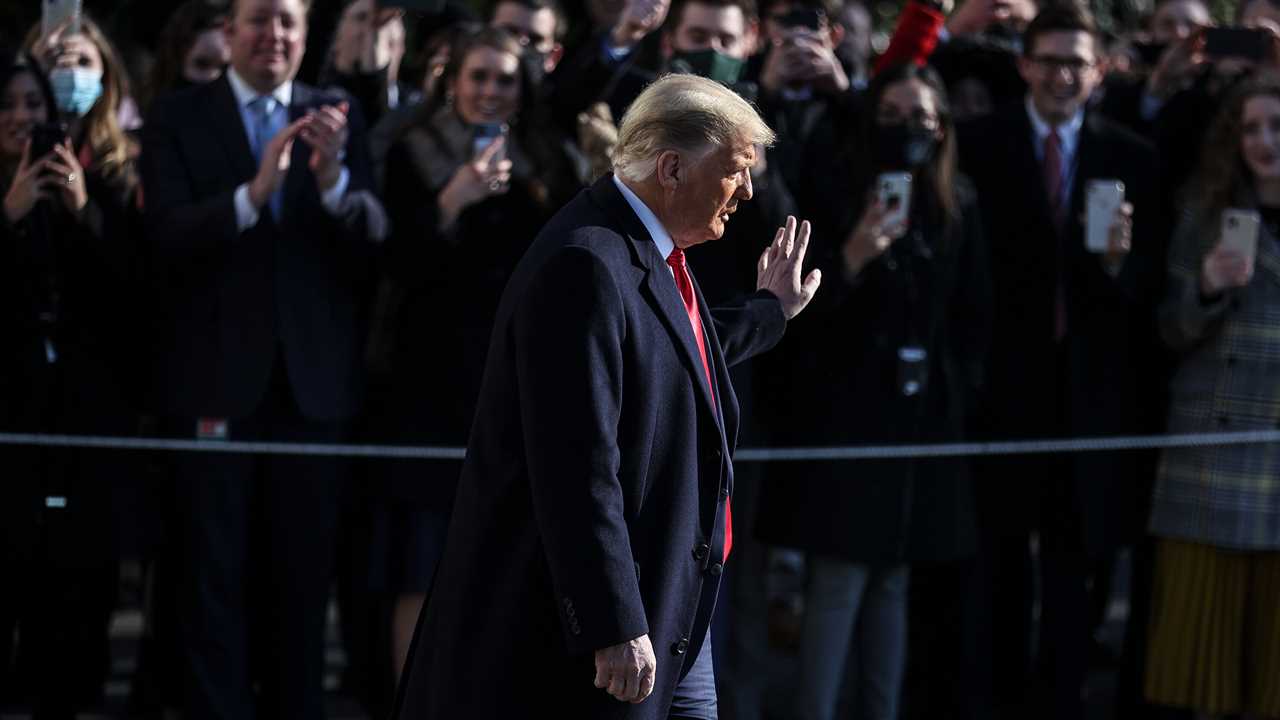
The relationship between President Trump’s words and their consequences has always been fairly straightforward: He says what he wants, and nothing particularly durable tends to happen to him.
But in the final frames of his presidency, and in the aftermath of his second impeachment, Mr. Trump is confronting an unfamiliar fate. He is being held to account as never before for things he has said, finding his typical defenses — denial, obfuscation, powerful friends, claiming it was all a big joke — insufficient in explaining away a violent mob acting in his name.
In almost certainly the most expansive series of penalties he has incurred in his life, Mr. Trump’s Twitter account has been banned, his business brand badly dented, his presidency doomed to the historical infamy of a second impeachment. His largest lender, Deutsche Bank, is moving to create distance from him. His New Jersey golf club was stripped of a major tournament. Some once-reliable Republican congressional loyalists are revisiting their commitment, threatening his grip on the party, even as the president’s popularity with much of his support base remains undimmed.
Those who have known and watched Mr. Trump across the years cannot shake the irony of a president felled by the very formula that powered his rise: inflammatory speech and a self-regard that has congealed at times into functional self-delusion.
He has never considered words to be as significant as actions, or even in the same category of prospective offense. Words were whatever got him through the next interaction, people who worked with him say. Words were not deemed important enough to invite serious trouble.
So well-developed were Mr. Trump’s survival instincts, in theory, that he had all but perfected the art of semi-plausible deniability — an upside of being on seemingly every side of every major political issue at various points in his adult life.
Hadn’t he said the right thing that onetime? That was what he meant.
Hadn’t he winked at the crowd a bit? Everyone takes him too seriously.
Hadn’t he used the word “peacefully” onetime in that address before the Capitol riot, tucked between the more dominant instructions to “fight” and “show strength” and “go by very different rules” as he whipped up anger against elected officials, including his own vice president, who were disinclined to subvert the will of the electorate?
“He has had a habit of saying outrageous things and then saying he was being sarcastic, he was kidding, that people shouldn’t take him literally — and in fact, if you do, what an idiot you are,” said Gwenda Blair, a biographer of the Trump family. “It’s both deniability for himself, but it’s also deniability for his followers. He gives something to hold onto so that they can then continue to believe in him.”
But Mr. Trump, and much of the political class that was shocked and disoriented by his 2016 win, has sometimes conflated his reputational resilience with a notion that nothing he says can hurt him, no matter how ostensibly damaging.






